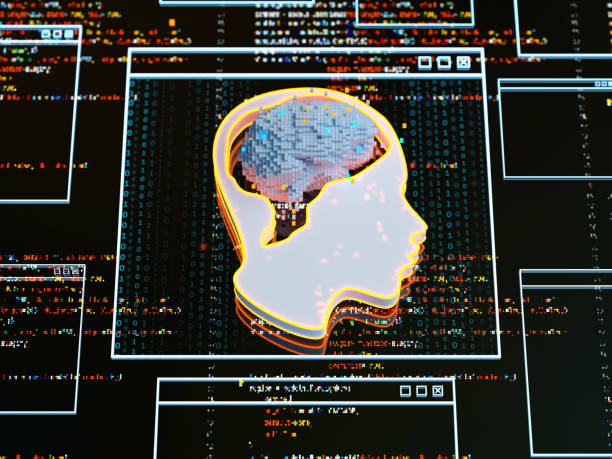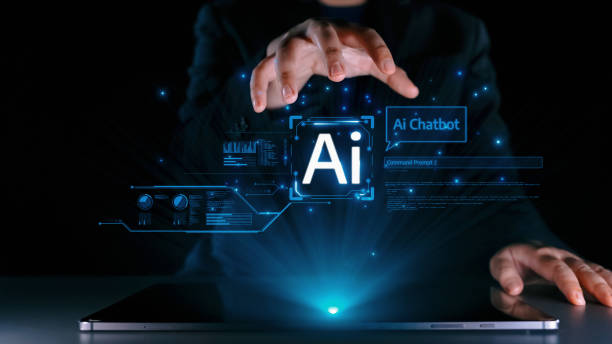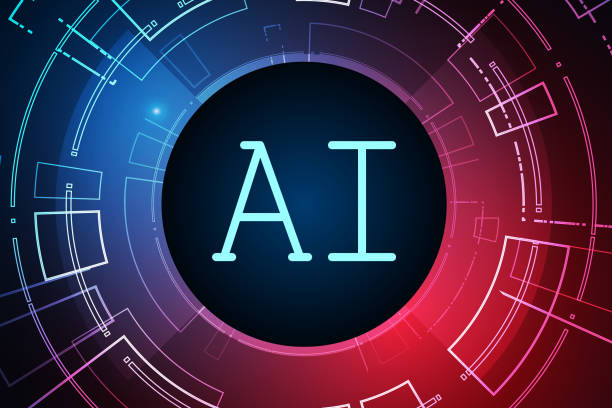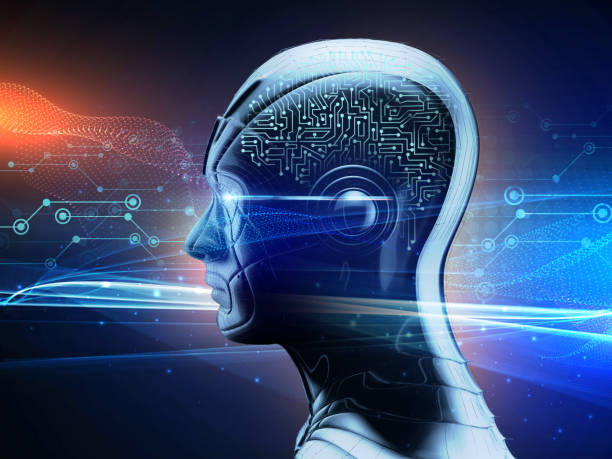What is an AI Assistant and How Does it Work?
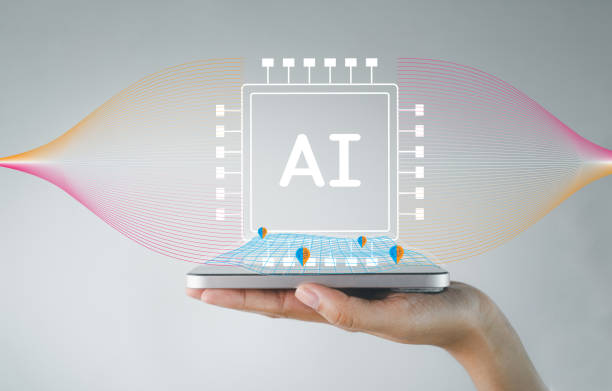
#AI_Assistant (Artificial Intelligence Assistant) refers to a software or system designed using Artificial Intelligence (AI) to perform various tasks automatically or semi-automatically.
These tasks can include answering questions, providing suggestions, performing calculations, controlling devices, generating content, and many other things.
By analyzing existing data, patterns, and information, an AI assistant can make decisions and help users complete their tasks faster and more efficiently.
The functionality of an AI assistant is based on a combination of Machine Learning algorithms, Natural Language Processing (NLP), and other AI techniques.
Machine learning enables the AI assistant to learn from data and improve its performance over time.
Natural Language Processing allows it to understand and interact with human language.
In short, an AI assistant collects data, analyzes it, identifies patterns, and based on these patterns, answers questions, provides suggestions, or performs tasks.
For example, a #Voice_Assistant like #Siri or #Alexa is an example of these #AI_Assistants that process your voice commands using NLP.
AI assistants are used in various fields, including:
- Customer Support AI assistants can answer customer questions and resolve their issues.
- Task Management AI assistants can manage daily tasks, such as setting reminders, scheduling meetings, and sending emails.
- Content Creation AI assistants can generate text, audio, and visual content.
- Data Analysis AI assistants can analyze data and identify important patterns and trends.
Do you have an online store, but your sales aren’t what you expected? RasaWeb solves your problem forever by designing professional e-commerce websites!
✅ Significant increase in conversion rates and sales
✅ Unparalleled user experience for your customers
⚡ Click here to get a free consultation with RasaWeb!
Types of AI Assistants and Their Applications

AI assistants can be categorized into different types based on their interaction with users and their applications.
Some of the most important types of AI assistants include:
- Voice Assistants These assistants interact with users via voice and can answer questions, execute commands, and provide information.
Siri, Alexa, and Google Assistant are among the most popular voice assistants. - Text-based Assistants These assistants interact with users via text and can answer questions, provide information, and perform tasks.
Chatbots are an example of text-based assistants. - Visual Assistants These assistants interact with users through images and can identify objects, analyze images, and provide information.
- Virtual Assistants These assistants interact with users as 3D avatars and can perform various tasks.
The applications of AI assistants are very broad and include the following:
- Customer Support AI assistants can answer customer questions, resolve their issues, and provide information about products and services.
- Healthcare AI assistants can help doctors diagnose illnesses, set up treatment plans, and improve patient care.
- Education AI assistants can help students learn, answer their questions, and correct their assignments.
- Finance and Banking AI assistants can help customers manage their finances, manage investments, and prevent fraud.
- Retail AI assistants can help customers with shopping, provide personalized suggestions, and improve the shopping experience.
Choosing the right type of AI assistant depends on the user’s needs and goals.
For example, if the user is looking for an assistant to answer questions and provide information, a voice or text-based assistant could be a suitable option.
However, if the user is looking for an assistant to help diagnose illnesses, a visual or virtual assistant might be more appropriate.
In any case, an AI assistant can facilitate tasks.
Important Criteria for Choosing an AI Assistant

Choosing a suitable AI assistant can significantly impact your productivity and efficiency.
When selecting an AI assistant, you should consider several important criteria:
- Capabilities and Features The AI assistant should offer capabilities and features that meet your needs.
For example, if you are looking for an assistant for content creation, you should ensure that your chosen assistant has the ability to generate text, audio, and visual content. - Accuracy and Correctness The AI assistant should provide accurate and correct information.
To this end, you should pay attention to the quality of the data the assistant uses and the algorithms it operates on. - Ease of Use The AI assistant should be easy to use, and the user should be able to interact with it effortlessly.
The assistant’s user interface should be simple and understandable. - Security and Privacy The AI assistant must protect the security and privacy of your data.
You should ensure that your chosen assistant uses strong security protocols and securely stores your data. - Price The price of the AI assistant should be compatible with your budget.
Before purchasing, you should carefully review the price and payment terms.
In addition to these criteria, you should also pay attention to the opinions and experiences of other users.
Reading reviews and evaluations can help you gain a better understanding of the performance and capabilities of various AI assistants.
An AI assistant is, in fact, an always-available companion.
| Criterion | Description |
|---|---|
| Capabilities and Features | Capabilities and features that meet your needs |
| Accuracy and Correctness | Accurate and correct information |
| Ease of Use | Easy use and comfortable interaction |
| Security and Privacy | Protection of data security and privacy |
| Price | Budget compatibility |
How to Make Optimal Use of an AI Assistant
![]()
To make optimal use of an AI assistant, you must first accurately identify your needs.
Determine what you expect from the AI assistant and what tasks you want to assign to it.
Then, carefully read the instructions and guidelines for the AI assistant and learn how to use it.
Try to communicate clearly and concisely with the AI assistant.
Use simple and unambiguous language.
The more precise your commands are, the better the AI assistant can understand them and provide an appropriate response.
Provide feedback to the AI assistant.
If you are not satisfied with the assistant’s response or performance, let it know.
This helps the assistant learn from its mistakes and improve its performance.
Also, if you have suggestions for improving the assistant’s performance, share them with the developers.
The AI assistant enhances its efficiency with your feedback.
Pay attention to the security and privacy of your data.
Avoid sharing sensitive information with your AI assistant and ensure that your chosen assistant uses strong security protocols.
Regularly review the assistant’s privacy settings and adjust them according to your needs.
An #AI_Assistant must be trustworthy to be able to help you.
Use the AI assistant for repetitive and time-consuming tasks.
This helps you free up your time and energy for more important tasks.
For example, you can use an AI assistant to respond to emails, schedule meetings, and gather information.
AI assistants also have numerous applications in other fields.
Is your company’s website performing as it should for your brand? In today’s competitive world, your website is your most important online tool. RasaWeb, a specialist in professional corporate website design, helps you to:
✅ Build credibility and customer trust
✅ Convert website visitors into customers
⚡ Get a free consultation!
Advantages and Disadvantages of Using AI Assistants
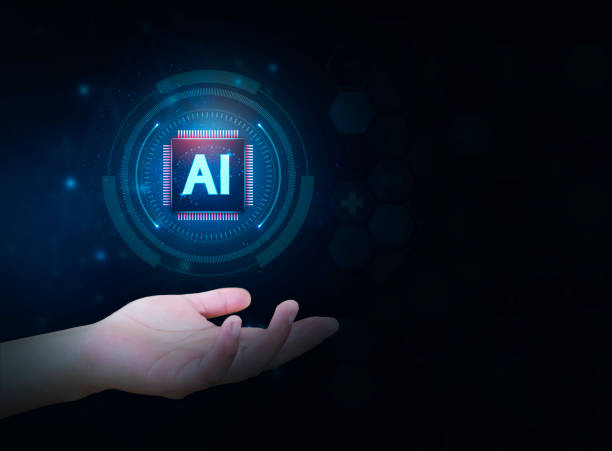
Using AI assistants offers numerous advantages, including:
- Increased Productivity AI assistants can perform tasks faster and more efficiently than humans.
- Cost Reduction AI assistants can reduce human resource-related costs.
- 24/7 Accessibility AI assistants can be available 24 hours a day, 7 days a week.
- Improved Accuracy AI assistants can perform tasks with greater accuracy than humans.
- Personalization AI assistants can be customized based on the specific needs of each user.
However, the use of AI assistants also has disadvantages, including:
- Initial Cost Implementing AI assistants can be expensive.
- Technological Dependency AI assistants are dependent on technology, and their performance may be disrupted if technology issues arise.
- Security Concerns AI assistants may be vulnerable to cyberattacks, compromising sensitive user information.
- Lack of Human Skills AI assistants cannot replace human skills such as creativity, empathy, and critical thinking.
- Ethical Issues The use of AI assistants may raise new ethical concerns, such as discrimination and bias.
Overall, using AI assistants can have many benefits, but their disadvantages must also be considered, and necessary measures taken to mitigate potential risks.
Considering all aspects of an AI assistant helps us make a better choice.
The Future of AI Assistants: What Should We Expect?

The future of AI assistants is very bright and promising.
With the continuous advancement of technology, it is expected that AI assistants will become much more advanced, intelligent, and practical in the coming years.
Some expectations for the future of AI assistants include:
- Enhanced Learning Capabilities AI assistants will be able to learn from their data and experiences and continuously improve their performance.
- Improved Natural Language Understanding AI assistants will be able to fully understand human language and interact with it naturally.
- Increased Problem-Solving Capabilities AI assistants will be able to solve complex problems and offer creative solutions.
- Expansion of Applications AI assistants will find new applications in various fields such as healthcare, education, transportation, and manufacturing.
- Integration with Other Technologies AI assistants will integrate with other technologies such as the Internet of Things (IoT), Augmented Reality (AR), and Virtual Reality (VR), creating new user experiences.
However, challenges and potential risks must also be considered.
The development and use of AI assistants must adhere to ethical principles and take into account security and privacy issues.
The future of AI assistants requires proper planning.
The #Future_of_AI depends on efforts to transform this technology into a tool for improving human lives.
Security and Privacy Challenges in Using AI Assistants
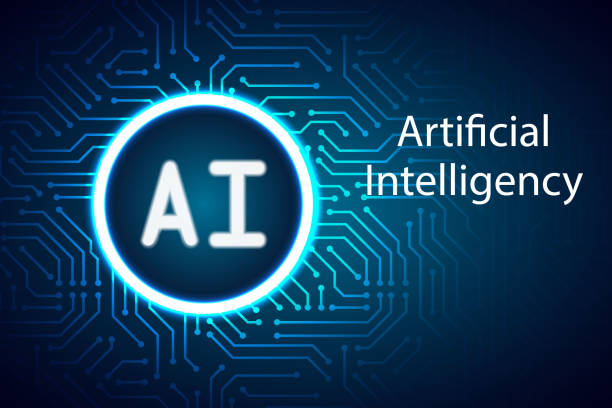
The use of AI assistants, despite its numerous benefits, also comes with significant security and privacy challenges.
These challenges can stem from the collection, processing, and storage of vast amounts of personal data by these assistants.
Some of the most important security and privacy challenges in using AI assistants include:
- Privacy Breach AI assistants can collect and store users’ personal information, such as location data, search history, conversations, and daily habits.
This information may be used for illicit purposes. - Cyberattacks AI assistants may be subjected to cyberattacks, putting user information at risk.
Hackers can gain access to users’ personal information through these attacks and misuse it. - Discrimination and Bias AI algorithms may contain biases that lead to discrimination in providing services to users.
For example, an AI assistant might provide better services to a specific group of users due to biases in the training data. - Insufficient Transparency The performance of AI assistants may not be transparent, and users might not know how they make decisions.
This issue can lead to a lack of trust among users regarding these assistants.
To address these challenges, the following actions should be taken:
- Enactment of Laws and Regulations Laws and regulations must be enacted to govern the use of AI assistants and guarantee user rights.
- Increasing User Awareness Users must be made aware of the security and privacy risks associated with using AI assistants and learn how to protect their personal information.
- Improving Security Developers of AI assistants must take necessary measures to improve the security of these assistants and prevent cyberattacks.
- Reducing Bias Developers of AI assistants must strive to reduce biases present in their algorithms and prevent discrimination in providing services to users.
- Increasing Transparency Developers of AI assistants must make the performance of these assistants more transparent and explain to users how they make decisions.
| Challenge | Description |
|---|---|
| Privacy Breach | Collection and storage of personal information |
| Cyberattacks | Hackers’ access to user information |
| Discrimination and Bias | Discrimination in providing services to users |
| Insufficient Transparency | Lack of transparency in assistant’s performance |
The Impact of AI Assistants on Jobs and the Labor Market

AI assistants have the potential to bring about fundamental changes in jobs and the labor market.
On the one hand, they can completely eliminate some jobs, especially those involving repetitive and routine tasks.
On the other hand, they can create new jobs and help humans be more productive and creative in their work.
Some jobs that may be affected by AI assistants include:
- Office Jobs AI assistants can automatically perform office tasks such as data entry, answering phones, and scheduling appointments.
- Manufacturing Jobs AI assistants can be employed in factory production lines to perform tasks such as assembling parts, quality inspection, and product packaging.
- Transportation Jobs Self-driving cars and drones can replace drivers and pilots.
- Service Jobs Chatbots and virtual assistants can answer customer questions and resolve their issues.
Some jobs that may be created with the emergence of AI assistants include:
- AI Developers Specialists who design, develop, and implement AI algorithms.
- Data Specialists Specialists who collect, analyze, and interpret data.
- AI Ethics Specialists Specialists who examine ethical issues related to the development and use of AI.
- AI Trainers Specialists who teach individuals how to work with and benefit from AI assistants.
For individuals to succeed in the future job market, they must learn new skills compatible with AI.
These skills include critical thinking, problem-solving, creativity, empathy, and communication skills.
AI assistants are meant to help humans, not replace them.
Worried about losing customers because you don’t have a professional e-commerce website?
With e-commerce website design by RasaWeb, forget these worries!
✅ Significant increase in sales and conversion rate from visitor to customer
✅ Professional and user-friendly design that builds customer trust
⚡ Get a free consultation from RasaWeb
Key Points for Successful AI Assistant Implementation in Organizations
![]()
Successful implementation of an AI assistant in an organization requires careful planning and attention to the following key points:
- Define Objectives First and foremost, you must define your objectives for implementing the AI assistant.
What problems do you want the AI assistant to solve, and what benefits do you want it to bring to your organization? - Select the Right Assistant You must choose an AI assistant that is compatible with your organization’s needs and goals.
Consider the capabilities, price, security, and ease of use of different assistants. - Data Preparation The AI assistant requires data for proper learning and operation.
You need to collect, clean, and prepare the necessary data. - Employee Training Organization employees must learn how to use the AI assistant.
Provide them with the necessary training and answer their questions. - Evaluation and Improvement After implementing the AI assistant, you must continuously evaluate its performance and, if necessary, make the required changes and improvements.
In addition to these points, organizational culture must also be considered.
The implementation of an AI assistant may face resistance from some employees.
You must strive to reduce this resistance and adapt the organizational culture to be receptive to new technologies.
Integrating an AI assistant into an organization requires culturalization.
Are AI Assistants a Threat to Human Identity?

The question of whether AI assistants pose a threat to human identity is one of the important and controversial questions of our time.
Some people believe that AI assistants, by mimicking human behavior and speech, can weaken human identity and make humans feel that they are no longer unique.
Others believe that AI assistants are merely tools that can help humans with their tasks and pose no threat to human identity.
They argue that human identity is shaped by human values, beliefs, experiences, and relationships, and cannot be destroyed by mimicking human behavior and speech.
It seems that the answer to this question depends on how AI assistants are used.
If AI assistants are used as tools to help humans perform their tasks, there will be no threat to human identity.
However, if AI assistants are used to replace humans, human identity may be weakened, and humans may feel that they are no longer valuable.
#Human_Identity in the age of AI requires redefinition.
Therefore, it is important to pay attention to ethical and social issues in the development and use of AI assistants and strive to use this technology in a way that benefits humans and strengthens human identity.
Also, an AI assistant is useful only if it improves the quality of life.
Frequently Asked Questions
| Row | Question | Answer |
|---|---|---|
| 1 | What is an AI assistant? | A software program that performs tasks or services for an individual based on verbal or textual commands. |
| 2 | Name a few examples of AI assistants. | Siri, Google Assistant, Alexa, and Cortana. |
| 3 | How do AI assistants work? | They use Natural Language Processing (NLP), machine learning, and artificial intelligence to understand user input and provide responses or perform tasks. |
| 4 | What can an AI assistant do? | Answer questions, set reminders, play music, send messages, manage calendars, and control smart devices. |
| 5 | What are the benefits of using an AI assistant? | Increased productivity, quick access to information, assistance for individuals with disabilities, and simplification of daily tasks. |
| 6 | Are AI assistants’ responses always accurate? | No, they may sometimes make mistakes or provide outdated information, especially concerning complex or sensitive topics. |
| 7 | What are the privacy concerns regarding AI assistants? | Recording and storage of audio/text data, potential for unauthorized access, and use of data for advertising purposes. |
| 8 | What will the future of AI assistants be like? | Becoming smarter, greater integration with devices and platforms, deeper understanding of emotions, and ability to perform more complex tasks. |
| 9 | Do AI assistants learn from users? | Yes, through machine learning and data collection from previous interactions to improve performance and personalize responses. |
| 10 | What is the difference between an AI assistant and a chatbot? | An AI assistant has the ability to perform a wider range of tasks beyond conversation and is often integrated with an operating system or hardware, whereas a chatbot is primarily designed for conversation or answering specific questions. |
And other services by RasaWeb Advertising Agency in the field of advertising
- Smart Marketing Automation: A combination of creativity and technology to increase click-through rates by designing an attractive user interface.
- Smart Google Ads: A combination of creativity and technology to improve SEO ranking through custom programming.
- Smart UI/UX: A professional solution to improve SEO ranking with a focus on SEO-driven content strategy.
- Smart Digital Branding: A combination of creativity and technology for campaign management using real data.
- Smart Advertising Campaigns: Professional optimization for customer acquisition using an SEO-driven content strategy.
And over hundreds of other services in the field of internet advertising, advertising consulting, and organizational solutions
Internet Advertising | Advertising Strategy | Advertorials
Sources
Guide to Choosing an AI Assistant
AI Opportunities in Iran
Challenges of AI Development
Practical Applications of AI
? Is your business ready to soar to success? RasaWeb Afarin Digital Marketing Agency, by offering comprehensive and professional services, including modern and user-friendly e-commerce website design, targeted digital marketing strategies, and specialized SEO, paves the way for your brand’s growth and brilliance.
📍 Tehran, Mirdamad Street, next to Bank Markazi, Southern Kazeroon Alley, Ramin Alley, No. 6

